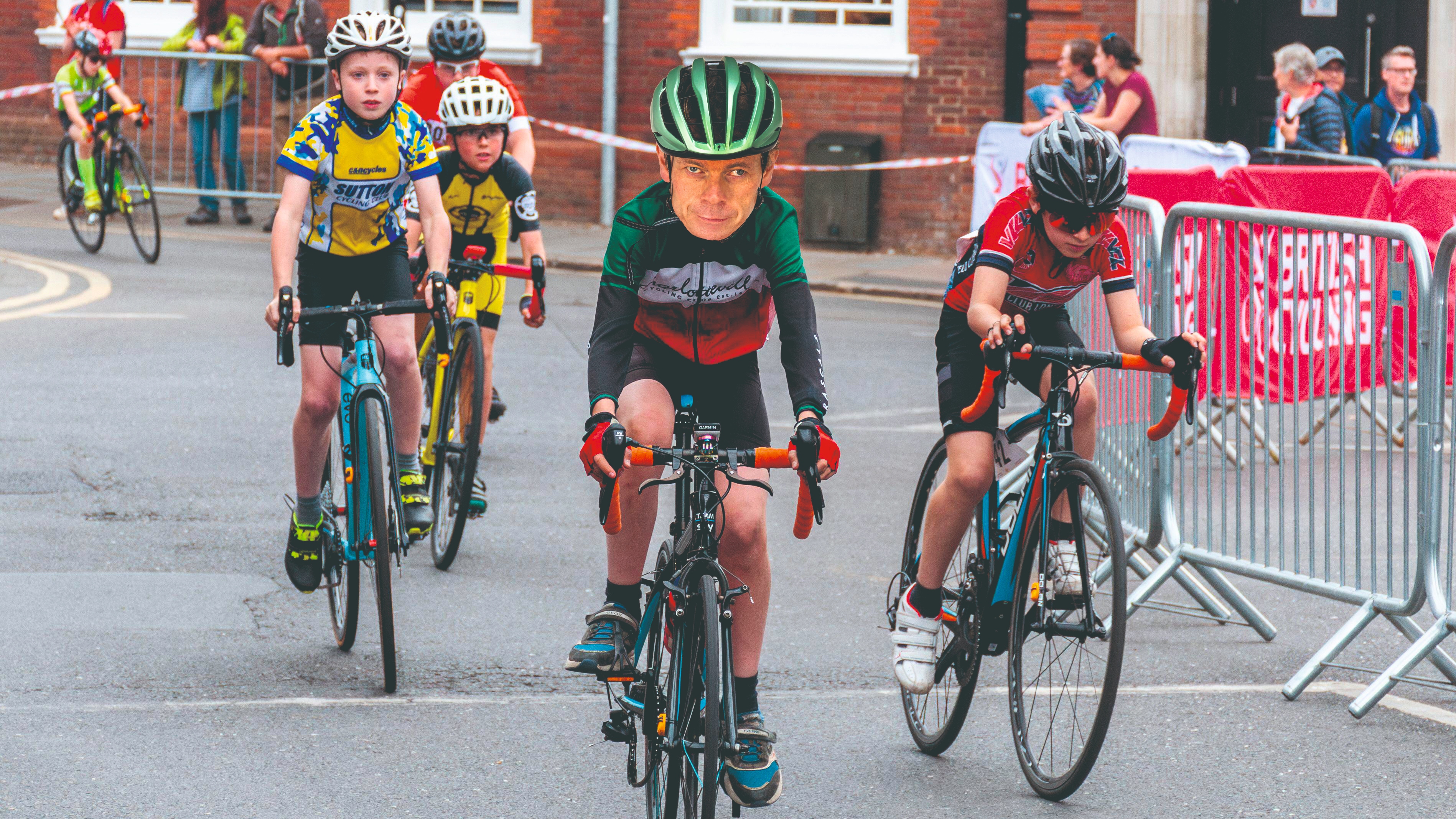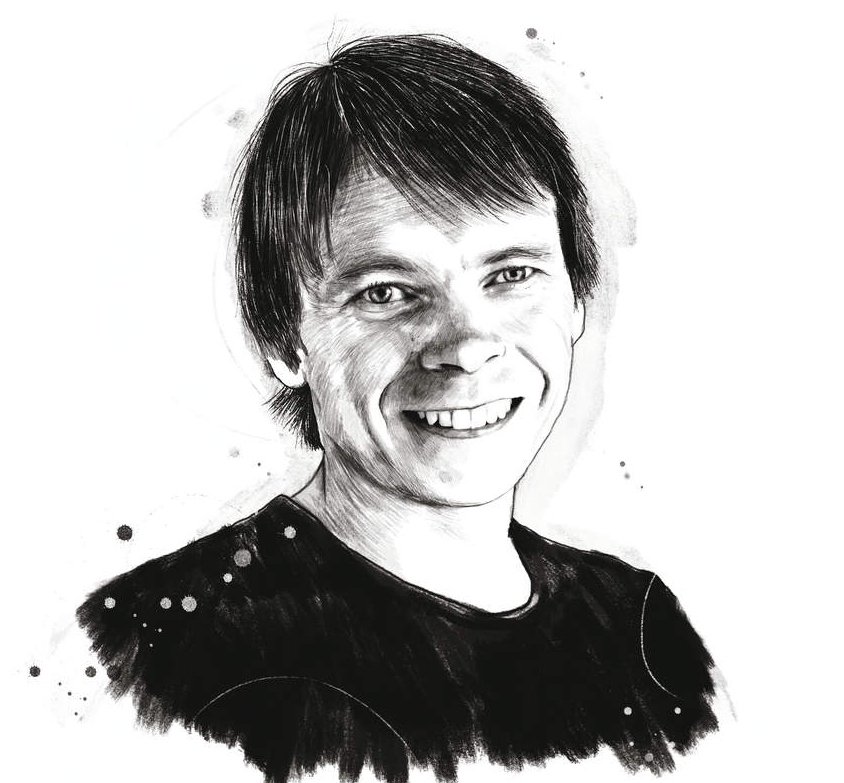Improved cycling tech means we now know 'form' was a myth, but it was a lot more fun when we had no idea what was going on
Before power meters, coincidence soon became custom

One of my prouder moments in cycling was the first time I won a race that was big enough to rank a mention in Cycling Weekly print magazine. I can’t remember the name of the race, but I know it was in Essex, and from the report I very clearly remember the phrase, “… was won by in-form Michael Hutchinson”.

Multiple national champion on the bike and award-winning author Michael Hutchinson writes for CW every week
I remember it because “in-form” in this context is code. It meant that Graham Snowdon, who wrote the report in question, had no idea who I was. I was an unfamiliar name, I’d beaten the guy who was expected to win, so the only explanation was that I had “good form”. There was the strong implication that as soon as this mercurial blessing from the cycling gods had passed, I’d sink back into obscurity and Graham (a lovely man, by the way) could continue to compile race reports without ever needing to know anything more about me other than that my name was easy to spell.
You used to hear a lot more about form than you do now, not least in the phrase, “Form is temporary, class is permanent,” which was not an aphorism dreamed up by someone who was winning much at the time. Hence you’d score a decent win somewhere, and one of the old lags would sidle up to you afterwards and say, “You’ve got some good form at the moment.” It had an air of mafioso threat about it. “That’s a great FTP you’ve got there. Enjoy it while you still can.”
I think the reason that “form” is so much less prominent now is that it was most often used to signal something that was close to luck. In the current era, we like to believe we’ve driven the luck out of training and racing. If someone wins a race now, knowing some power numbers from a few riders, even if it doesn’t include the winner, allows you to work out what’s going on. But back in the dark ages, when all you had to go on was a result or two, it was much more difficult.
When a rival had form, you cursed them and hoped it wouldn’t last. If it was you that had form, it was much more difficult. You’d win a few races you didn’t quite expect to and start wondering if it was form or if this was in fact a whole new you. Maybe, finally, you’d gained that 30 watts you’d been sweating over all these years, and now you’d never have to give them back.
Then, of course, it would go away, and you’d be back to the previous you, finishing down the field and wondering what had happened. People drove themselves crazy trying to recreate form that seemed to have come from nowhere. They combed through training diaries looking for clues. Riders had key sessions that had little to do with physiology and much to do with religious observance. One miracle was enough to drive a lifetime of conviction.
For example, my friend Bernard set a blinding personal best the very day after he’d ridden from Cambridge to Canterbury and back to watch the Tour de France. For 10 years afterwards, he would repeat this pilgrimage before a big race. Obviously it never worked again, but he remained convinced it was the “other” nine repetitions of this 200-mile recovery ride that were the outlier results.
Get The Leadout Newsletter
The latest race content, interviews, features, reviews and expert buying guides, direct to your inbox!
We’ve lost all of this now. If you monitor your fitness with the current tech, you realise that nothing weird ever really happens. You get fit. You get less fit. But the VO2 max fairy doesn’t exist. If you want to go faster you probably ought to do something to deserve it. But I’ll say this much; it was a lot more fun when we had no idea what was going on.

Thank you for reading 20 articles this month* Join now for unlimited access
Enjoy your first month for just £1 / $1 / €1
*Read 5 free articles per month without a subscription

Join now for unlimited access
Try first month for just £1 / $1 / €1
Michael Hutchinson is a writer, journalist and former professional cyclist. As a rider he won multiple national titles in both Britain and Ireland and competed at the World Championships and the Commonwealth Games. He was a three-time Brompton folding-bike World Champion, and once hit 73 mph riding down a hill in Wales. His Dr Hutch columns appears in every issue of Cycling Weekly magazine
You must confirm your public display name before commenting
Please logout and then login again, you will then be prompted to enter your display name.
-
 FDJ-Suez, SD Worx-Protime, Lidl-Trek confirmed for Tour of Britain Women as strong list of teams announced
FDJ-Suez, SD Worx-Protime, Lidl-Trek confirmed for Tour of Britain Women as strong list of teams announced18 teams set to take part in four-day WorldTour stage race
By Tom Thewlis
-
 Cyclists could face life sentences for killing pedestrians if new law passed in England and Wales
Cyclists could face life sentences for killing pedestrians if new law passed in England and WalesReckless cycling currently carries a maximum two-year jail term
By Tom Thewlis